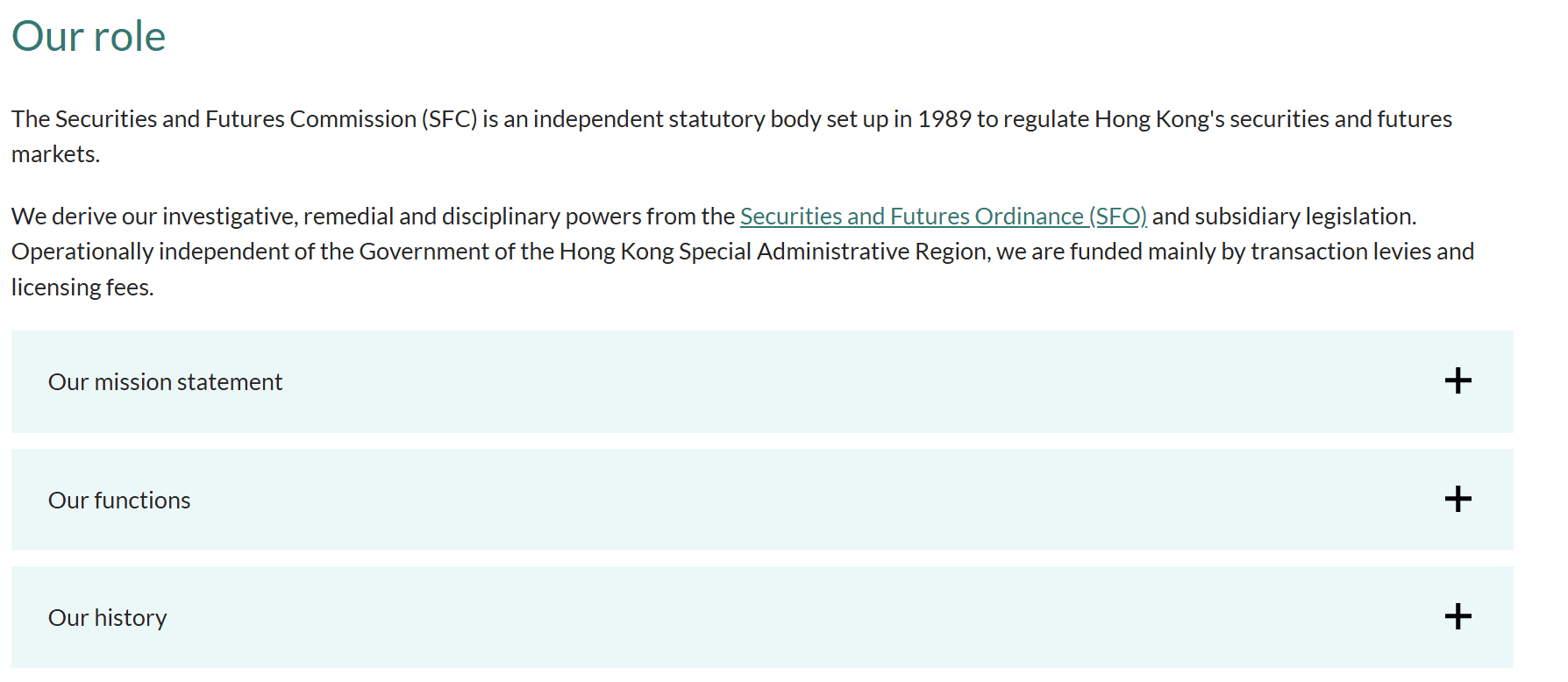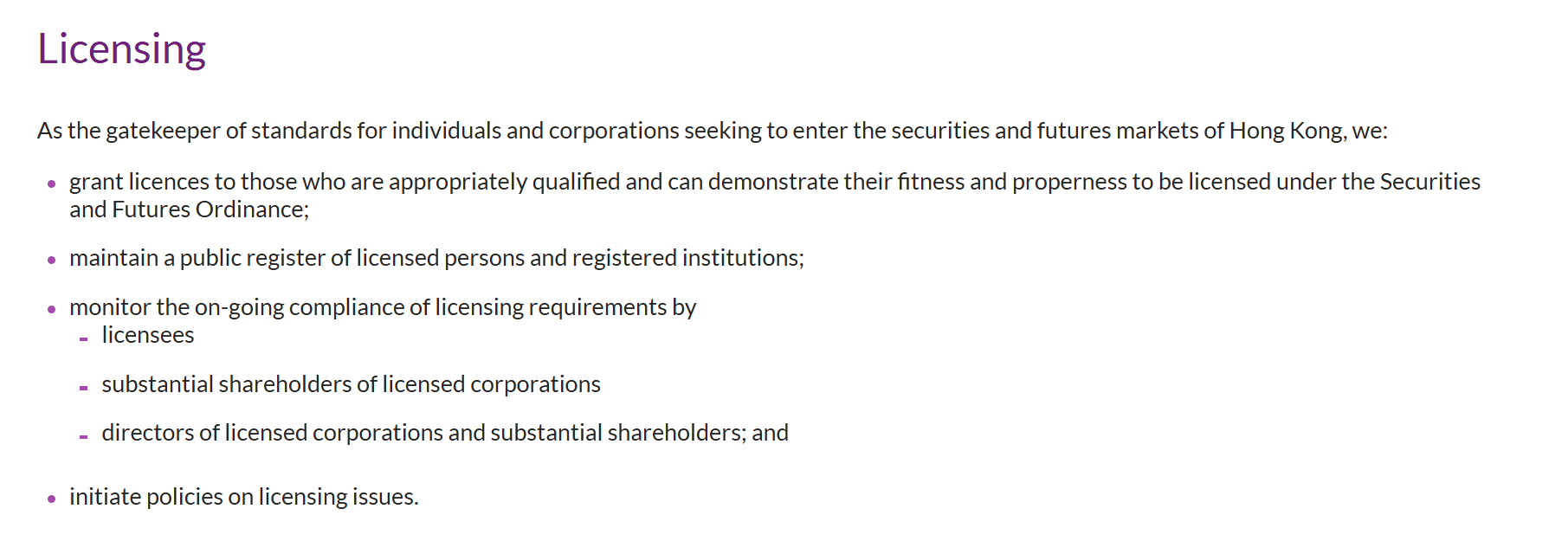Most businesses assume the SFC license in Hong Kong only matters for big finance players. That’s the myth. 2025 compliance is a different landscape. Tighter regulations. Stricter audits. And penalties that can halt operations overnight.
It’s not just banks or hedge funds; fintech startups, asset managers, and even smaller advisory firms are now on the hook. Yet many teams still treat licensing as a box to tick later.
In Hong Kong, licensing isn’t background paperwork. It’s the gatekeeper to your business staying open. This guide breaks down what the SFRC license is, who needs it, and why acting now protects your 2025 growth.
1. A short overview of the finance landscape in Hong Kong
Hong Kong’s financial system is tightly governed, and it matters for anyone entering the market. The Securities and Futures Commission (SFC) is the main regulator overseeing ‘securities’ and ‘futures’ activities under the Securities and Futures Ordinance (Cap. 571).

It also shares oversight of banks classified as ‘registered institutions.’ But primary supervision of those banks falls to the Hong Kong Monetary Authority (HKMA) under the Banking Ordinance (Cap. 155).
For overseas financial institutions or foreigners opening a company in Hong Kong offering their Fintech, financial products/services, the key takeaway is clear: To operate in Hong Kong, you must understand the regulatory landscape, meet licensing requirements for Regulated Activity (RA), and follow the procedures set by the SFC and HKMA.
2. What is an SFC license?
An SFC license is an official permit issued by Hong Kong’s Securities and Futures Commission (SFC). It authorizes companies and individuals to carry out regulated activities (RA) in the securities and futures industry. Both local and foreign businesses need an SFC license to stay compliant, unless they meet specific exemptions.

3. 12 types of regulated activities that need licensing
Use the list below to understand the categories defined under the Securities and Futures Ordinance for businesses operating in Hong Kong’s securities and futures markets. These are the activities that require licensing or registration with the SFC.
If your company in Hong Kong offers business activities that resemble the regulated activities by the SFC, you must apply for a license.
| Type | Activities |
| Type 1 | Dealing in securities |
| Type 2 | Dealing in futures contracts |
| Type 3 | Foreign exchange trading |
| Type 4 | Advising on securities |
| Type 5 | Advising on futures contracts |
| Type 6 | Advising on corporate finance |
| Type 7 | Providing automated trading services |
| Type 8 | Securities margin financing |
| Type 9 | Asset management |
| Type 10 | Providing credit rating services |
| Type 11 | Dealing in or advising on OTC derivative products |
| Type 12 | Providing client clearing services for OTC transactions |
4. When do SFC exemptions apply?
Not every business operating around securities or futures in Hong Kong needs an SFC license. So before you spend time and money applying, let’s be clear about when exemptions actually apply.
The 2 common exemptions from SFC licensing are group company exemptions and incidental exemptions.
4.1. Group company exemptions
Group company exemptions are the most common. A Hong Kong firm providing Type 4 (Advising on Securities) or Type 9 (Asset Management) services only to:
- It's 100% parent company
- Its wholly owned subsidiaries
- Other wholly owned subsidiaries of that parent
They qualify to skip a separate license. Because the SFC recognizes that regulated activities within a single corporate family don’t carry the same third-party risks.
If third-party money is involved, like managing a fund, even intra-group Type 9 activities won’t be exempt.
Imagine Harbor Capital Asia, a wholly owned subsidiary of Harbor Group Holdings, a global asset manager. Harbor Capital Asia manages portfolios exclusively for its parent company’s internal funds and for two other Harbor subsidiaries, with no outside investors. Because all activity stays within the corporate family and no third-party money is involved, they qualify for the intra-group exemption and don’t need a separate Type 9 license.
4.2. Incidental exemptions
Incidental exemptions are another key area. Sometimes, one license lets you carry out closely related activities without needing a second one.
For example:
- A Type 1 (Dealing in Securities) licensee can also handle Type 4 (Advising on Securities) or Type 9 (Asset Management) if those are incidental to its main business.
- A Type 9 (Asset Management) licensee can carry out Type 1, Type 2 (Futures), Type 4, and Type 5 (Futures Advising) if these services are part of managing a client’s assets.
- Expanded permissions for Type 3 (Leveraged FX Trading) and Type 12 (OTC Clearing) aren’t active yet and await SFC guidance before relying on them.
Consider Pearl Bay Investments, a Hong Kong asset manager holding a Type 9 license. One of its institutional clients asks Pearl Bay to execute a small number of securities trades directly related to the portfolios Pearl already manages.
Instead of applying for a separate Type 1 license, Pearl Bay can rely on the incidental exemption: those trades are a necessary part of delivering its core asset management service. By using this exemption properly, Pearl Bay saves time and compliance costs while staying fully within SFC rules.
5. Requirements for an SFC license
To help you get the license, our incorporation experts prepare a summary of what you need before applying. Each item is a foundation for smooth approval and long-term regulatory health.
These requirements below include, but are not limited to (Since each company must submit other documents based on their company activities, shareholding, each depends on the SFC boards upon examination):
| Requirement | What must you satisfy |
| Legal form | The company must be a Hong Kong-incorporated or an overseas company registered as a branch in Hong Kong. Sole proprietors and partnerships are not eligible. |
| Regulated activity (RA) | The company must identify the specific RA type(s) (e.g., Type 1 Dealing in Securities, Type 9 Asset Management). Each RA has tailored criteria and capital thresholds. |
| Minimum Paid-up capital & Liquid capital | Capital requirements vary: e.g., Type 4 or Type 9 typically HKD 100,000 paid-up and HKD 100,000 liquid minimum. |
| Responsible officers (ROs) | The company must have at least 2 ROs for each RA, with 1 executive director actively managing day-to-day business. ROs must have relevant experience and pass the local exams. |
| Fit and proper test | Directors, shareholders, and ROs must pass the SFC’s fit-and-proper assessment (integrity, competence, and financial soundness). |
| Business plan & Internal controls | The company must provide a detailed business plan, compliance manual, risk management policies, AML/CTF measures, and proper record-keeping procedures. |
| Physical office in HK | A local business address with proper facilities and staff. Virtual offices and registered address services are not accepted. |
| Auditor appointment | The company must have an independent, approved auditor |
| Application fee & processing Time | The company has to pay non-refundable fees (varies by RA) and expects around 20 weeks for SFC review plus prep time. |
| Ongoing obligations | After licensing, the company must maintain minimum capital, submit annual returns/audits, notify SFC of changes, and comply with AML/KYC regulations. |
6. How to get your company's SFC license in 5 steps
Before you can even apply for an SFC license, you need a properly structured entity. Our experts can align your company setup with SFC standards right from the start.
- Incorporate a Hong Kong limited company (or register a branch).
- Appoint qualified directors and secure a local registered address.
- Ensure your business structure fits SFC’s eligibility requirements.
SFC licenses are activity-specific, choosing the right type is critical. We’ll analyze your business model so you don’t over- or under-license and risk compliance issues later.
Examples of common Regulated Activities (RAs):
- Type 1: Dealing in securities
- Type 4: Advising on securities
- Type 9: Asset management
You’ll need to:
- Recruit or appoint Responsible Officers (ROs) with the right experience and exams.
- Maintain paid-up capital and liquid capital at SFC’s required levels.
- Prepare compliance manuals, AML/KYC policies, and internal control systems.
We handle the heavy lifting from preparing, reviewing, to communicating directly with SFC so your application moves fast.
- Gather incorporation documents, shareholder/director details, business plans, and policies.
- Complete the SFC forms, pay the fees, and ensure every detail matches compliance rules.
- Respond quickly to SFC’s follow-up questions to keep timelines on track.
Once you receive approval (usually in 20–24 weeks), you’re officially licensed. But the work doesn’t stop there; your Hong Kong company must maintain annual compliance. Our post-licensing support keeps your business running smoothly and risk-free long after approval.
- Launch operations under SFC oversight.
- Maintain ongoing compliance—regular filings, capital maintenance, and AML training.
- Set up periodic audits and monitoring to avoid penalties.
7. Is getting an SFC license worth it?
It should be pretty clear now: securing an SFC license in Hong Kong is complex, and it’s not necessarily the right move for every business immediately.
If you do not have
- A well-defined, regulated-activity model;
- Qualified personnel and strong compliance structures;
- Enough resources for setup and ongoing obligations.
It may make sense to delay. For others, the risk of operating without a license or misinterpreting exemptions simply isn’t worth it.
For now, you should focus on validating your business model, building internal capacity, and ensuring you meet the core requirements.
When you’re ready, you can apply with confidence. Global Link Asia Consulting and our experts are here to support you.
Global Link Asia Consulting will be your Hong Kong business partner, the one that helps you simplify complexity, reduce risk, and position your company for success from day one.
- Open a company in Hong Kong legally, fast with our one-stop support
- Get a reliable, experienced company secretary with our corporate secretarial service
- Support in opening your business bank accounts;
- Get an affordable, professional registered office address for your business;
- Support to open, authenticate, and manage Stripe and PayPal Business in Singapore, Hong Kong, and the U.S;
- Handle all your tax accounting needs, timely annual filings, auditing, and more.
8. FAQs about declaring company dormancy
If a Hong Kong company carries on Type 4 (Advising on Securities) or Type 9 (Asset Management) solely for its 100% parent, its wholly owned subsidiaries, or sibling subsidiaries of the same parent, it may qualify for a group company (intra-group) exemption from having to be licensed for those activities.
Individuals who act as ROs must satisfy “Guidelines on Competence,” including relevant industry experience (often 3 years in the past 6), proper qualifications (or exemptions if applicable), and/or passing SFC’s local regulatory exam (LRP).
There are conditional/full exemptions in certain cases, especially for those with long industry experience or who held prior licences.
Operating in a regulated activity without the proper licence is an offence under the SFO. The SFC may impose penalties, revoke registration, or take legal action.
Misusing exemptions or misunderstanding requirements can lead to compliance risk, reputation damage, and business disruption.
Global Link Asia Consulting Pte. Ltd. is pleased to announce the publication of the above insightful and informative article on our official website, Global Link Asia Consulting on 29th September 2025. The copyright for this article is exclusively held by Global Link Asia Consulting Pte. Ltd. Any unauthorized reproduction or distribution of this content without our express written permission is strictly prohibited. We value the protection of our intellectual property and appreciate your cooperation in adhering to these guidelines. Thank you for your continued support of Global Link Asia Consulting Pte. Ltd.



